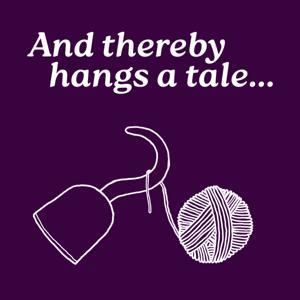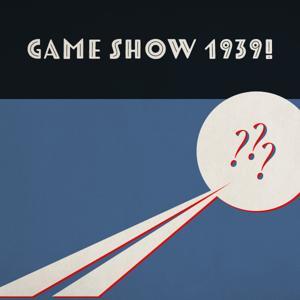This is a text which was composed by people who were alive for other people
who were alive, which was alive in the mouths of those who were singing and
performing it, and so it needs to feel alive again now for the new
performances, the new experiences of it—and then also it has to have a sense
of a long history, which is going to be enacted through the tools I have,
which is the English language.
We are delighted to have Emily
Wilson, professor and translator of the
Odyssey (and other works), join us at The Spouter-Inn to talk about the task
of the translator. When tackling a large work like the Odyssey, where did she
begin? What decisions did she make about form, voice, and allusion? And is the
finished project a poem by Homer? By Emily Wilson? Or is the situation a bit
Show Notes.
Emily Wilson on Twitter and on the
In addition to the links we provided with our episode on the
Odyssey, you’ll find a list of other
interviews on her website. Check
We’ll highlight this interview on Women Translating the
A sample tweet about her recent translation of Oedipus
Tyrannos (aka
Oedipus Rex or Oedipus the King).
A passage from the Odyssey:
> αὐτίκ᾽ ἔπειθ᾽ ὑπὸ ποσσὶν ἐδήσατο καλὰ πέδιλα,
ἀμβρόσια χρύσεια, τά μιν φέρον ἠμὲν ἐφ᾽ ὑγρὴν
ἠδ᾽ ἐπ᾽ ἀπείρονα γαῖαν ἅμα πνοιῇς ἀνέμοιο.
εἵλετο δὲ ῥάβδον, τῇ τ᾽ ἀνδρῶν ὄμματα θέλγει,
ὧν ἐθέλει, τοὺς δ᾽ αὖτε καὶ ὑπνώοντας ἐγείρει.
τὴν μετὰ χερσὶν ἔχων πέτετο κρατὺς ἀργεϊφόντης.
Πιερίην δ᾽ ἐπιβὰς ἐξ αἰθέρος ἔμπεσε πόντῳ:
σεύατ᾽ ἔπειτ᾽ ἐπὶ κῦμα λάρῳ ὄρνιθι ἐοικώς,
ὅς τε κατὰ δεινοὺς κόλπους ἁλὸς ἀτρυγέτοιο
ἰχθῦς ἀγρώσσων πυκινὰ πτερὰ δεύεται ἅλμῃ:
τῷ ἴκελος πολέεσσιν ὀχήσατο κύμασιν Ἑρμῆς.
ἀλλ᾽ ὅτε δὴ τὴν νῆσον ἀφίκετο τηλόθ᾽ ἐοῦσαν,
ἔνθ᾽ ἐκ πόντου βὰς ἰοειδέος ἤπειρόνδε
ἤιεν, ὄφρα μέγα σπέος ἵκετο, τῷ ἔνι νύμφη
ναῖεν ἐυπλόκαμος: τὴν δ᾽ ἔνδοθι τέτμεν ἐοῦσαν.
πῦρ μὲν ἐπ᾽ ἐσχαρόφιν μέγα καίετο, τηλόσε δ᾽ ὀδμὴ
κέδρου τ᾽ εὐκεάτοιο θύου τ᾽ ἀνὰ νῆσον ὀδώδει
δαιομένων: ἡ δ᾽ ἔνδον ἀοιδιάουσ᾽ ὀπὶ καλῇ
ἱστὸν ἐποιχομένη χρυσείῃ κερκίδ᾽ ὕφαινεν.
ὕλη δὲ σπέος ἀμφὶ πεφύκει τηλεθόωσα,
κλήθρη τ᾽ αἴγειρός τε καὶ εὐώδης κυπάρισσος.
ἔνθα δέ τ᾽ ὄρνιθες τανυσίπτεροι εὐνάζοντο,
σκῶπές τ᾽ ἴρηκές τε τανύγλωσσοί τε κορῶναι
εἰνάλιαι, τῇσίν τε θαλάσσια ἔργα μέμηλεν.
> At once he fastened on his feet the sandals
of everlasting gold with which he flies
on breath of air across the sea and land;
he seized the wand he uses to enchant
men’s eyes to sleep or wake as he desires,
and flew. The god flashed bright in all his power.
He touched Pieria, then from the sky
he plunged into the sea and swooped between
the waves, just like a seagull catching fish,
wetting its whirring wings in tireless brine.
So Hermes scudded through the surging swell.
Then finally, he reached the distant island,
stepped from the indigo water to the shore,
and reached the cavern where the goddess lived.
There sat Calypso with her braided curls.
Beside the hearth a mighty fire was burning.
The scent of citrus and of brittle pine
suffused the island. Inside, she was singing
and weaving with a shuttle made of gold.
Her voice was beautiful. Around the cave
a luscious forest flourished: alder, poplar,
and scented cypress. It was full of wings.
Birds nested there but hunted out at sea:
the owls, the hawks, the gulls with gaping beaks.
Lydia Davis’s translation of Gustave Flaubert’s Madame
Independence” by William Wordsworth, about a leech-gatherer.
Support The Spouter-Inn on Patreon.














































